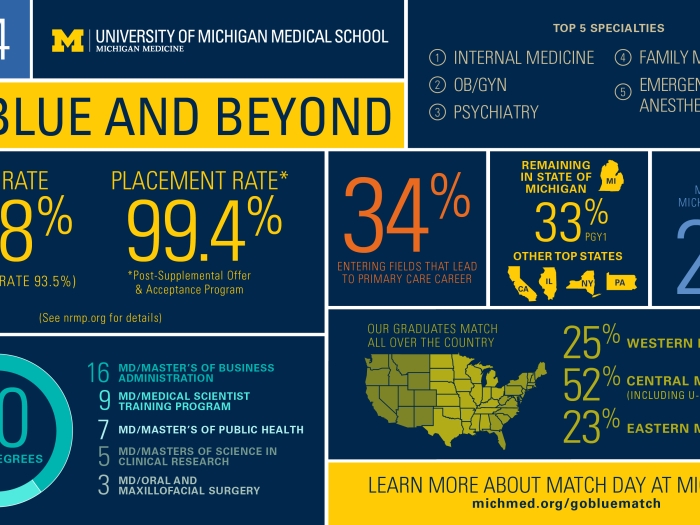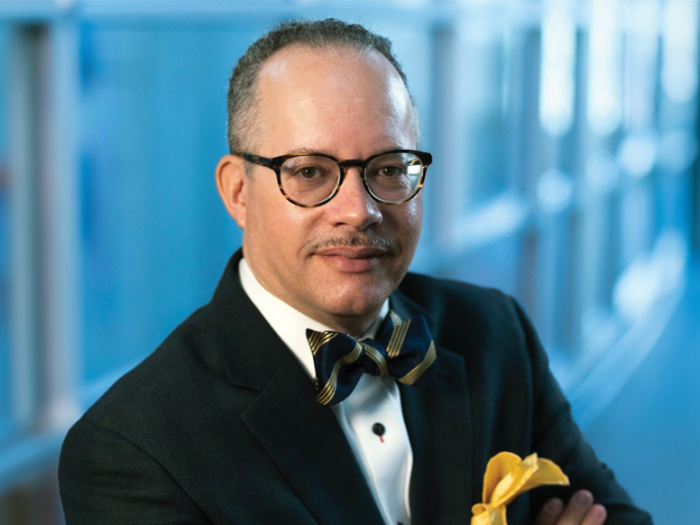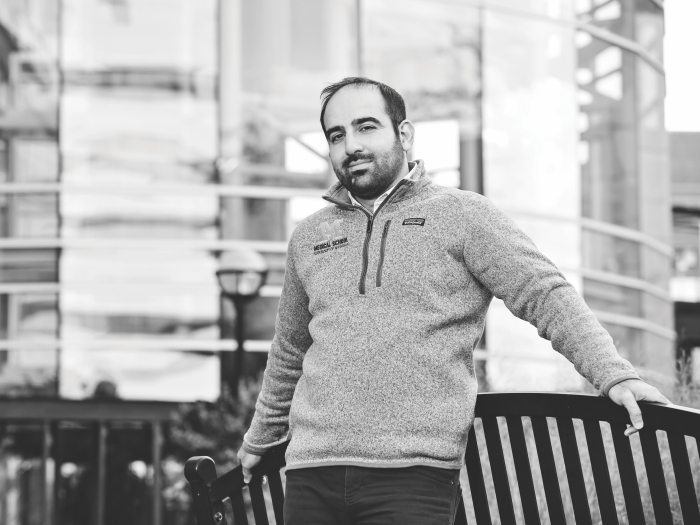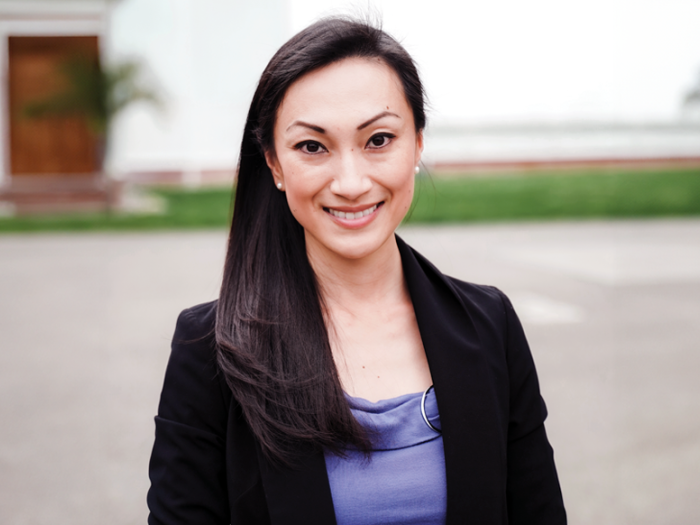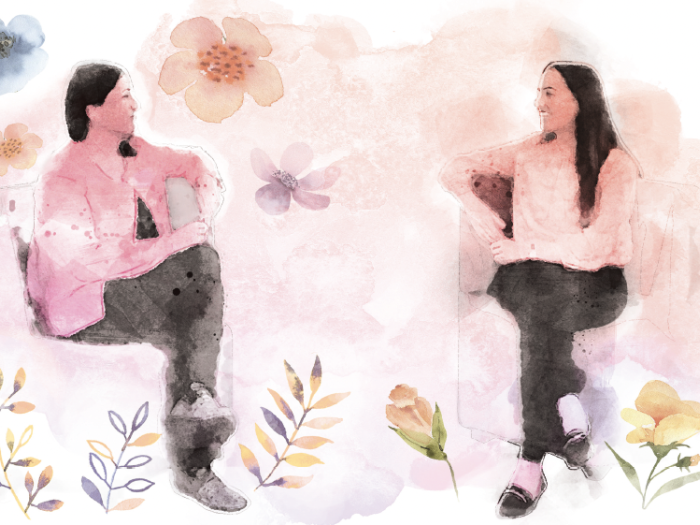A graduating medical student, her mother and her grandmother create a legacy of third-generation women physicians
9:13 AM
Author |
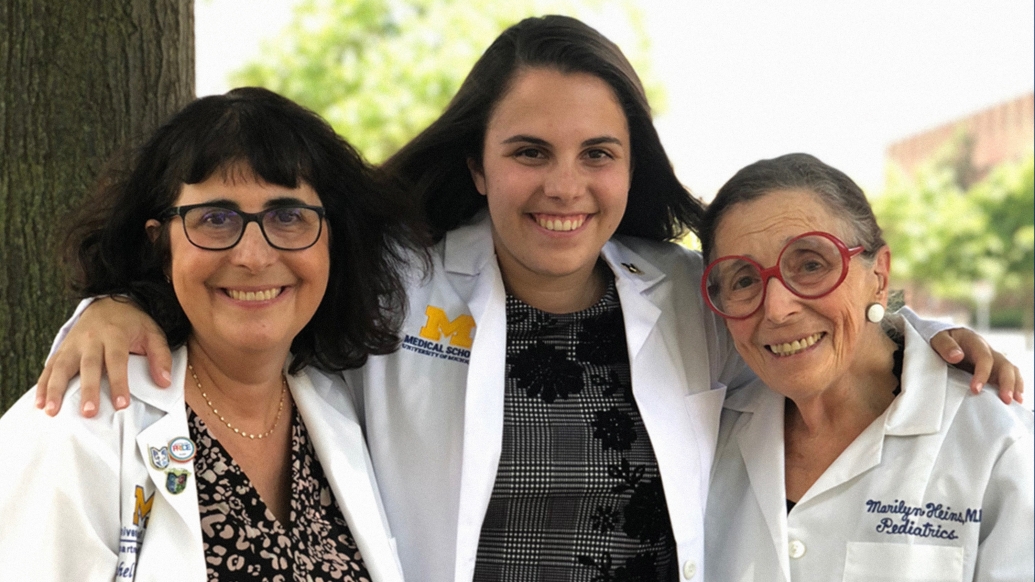
This article was updated on May 15, 2023.
For as long as graduating medical student Hannah Glick can remember, her grandmother has worn thick, red-framed glasses
“My grandma is one of the wisest and most inspiring people I know, and her glasses have always struck me as the embodiment of her essence,” said Hannah Glick. “She’s 92 years old and is truly a trailblazer in the field of medicine. Her glasses are eye-catching, unique and strong, just like she is.”
According to Glick, her grandmother, Marilyn Heins, M.D., went to Radcliffe College, which was a women’s liberal arts school that served as the ‘female only’ counterpart to the then, all-male Harvard University. Eventually, it became the Radcliffe Institute for Advanced Study in 1999.
SEE ALSO: Celebrating women in medicine
“After she received her undergraduate degree from Radcliffe, my grandma went on to pursue her medical degree at Columbia University, which was pretty remarkable given that very few women sought careers in medicine during that period of time,” said Hannah Glick. “She completed her residency training in pediatrics at New York Presbyterian Hospital before meeting my grandpa and moving to Michigan.”
In Michigan, Heins trailblazed even further, eventually becoming the director of pediatrics at Detroit Receiving Hospital and the associate dean for student affairs at Wayne State University School of Medicine. She later moved to Arizona, where she became a vice dean and professor of pediatrics at the University of Arizona.
“It was always clear to me that my grandma had a very profound love for education,” said Hannah Glick. “When she retired, she went on to take classes at the University of Arizona, further proving that she really is a lifelong learner.”
Glick’s mother, Rachel Glick, M.D., is also a retired physician who once served as the associate dean for student programs at the University of Michigan Medical School.
SEE ALSO: First-year residents reflect on their journeys and offer advice for Match Day
Once Hannah Glick receives her medical degree, this trio will be one of the families in the United States with three generations of women doctors that are living.
“My mom had an incredibly accomplished career as a psychiatrist and growing up, I’d hear a lot of stories from other people about how inspiring she is,” said Hannah Glick. “She worked in the emergency department, which obviously had its own challenges, but also instilled in me a desire to do my best, whether it was in school or sports.
I know there are probably a lot of people out there who might not want to hear about their mothers all the time from other people, but I really loved it. My mom is so beloved by her peers and community, it’s hard for me not to beam with pride when anyone mentions her name.”
Surprisingly, Glick says that she didn’t always want to become a physician, but eventually things changed.
“It was kind of funny growing up because ever since I was really little, I wanted to be a veterinarian,” she said. “In fact, my mom’s dad was a veterinarian, so I got to see some of the profession up close. But in middle school, I realized that dealing with sick and hurt animals on the regular was actually very sad, and I started to change course. I became 100% inspired to pursue medicine after hearing the stories my mom and grandma would tell about their profession.”
Creating a legacy
When Heins realized she is a part of this unique trio of women physicians, she initially couldn’t believe it.
“It feels remarkable to be a part of this legacy of a mother, daughter and granddaughter as living physicians in this country,” she said. “I was many ‘only ones’ in my career, but times have changed and there are now many women physicians in the U.S. Pretty neat that we produced three female medical offspring in a row! I am so very proud. At age 92, I have been retired for many years, but I have watched my daughter’s stellar medical career and now, my granddaughter’s medical education successes, with great pride.”
SEE ALSO: Medical student tackles cystic fibrosis on a global scale
Glick matched into urology and hopes to pursue a career that focuses on serving vulnerable populations, including members of the LGBTQ+ community who may be seeking gender-affirming care.
And after all her accomplishments, her mother now beams with pride when anyone mentions her name.
“I am very proud of both my mother and my daughter,” said Rachel Glick. “They each had a more significant uphill climb in their goals to become physicians than I did. My mom was a true trailblazer. She was one of only a handful of women in her medical school and residency classes. She helped establish programming for academic women physicians at the AAMC.
Hannah applied to medical school at a time when competition for spots was intense, even if most of her classmates were women. She got in and excelled and was able to match in urology at U-M, which was her dream residency. And she accomplished this while receiving her master’s in public health and making it all seem effortless.
It really is an honor to be related to these two.”

Explore a variety of healthcare news & stories by visiting the Health Lab home page for more articles.

Department of Communication at Michigan Medicine
Want top health & research news weekly? Sign up for Health Lab’s newsletters today!

